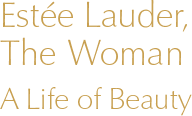Q1) Describe some RFID applications that might pose a threat to privacy. What information does RFID enable them to track?
Ans) tracking apparel: The implanted devices would enable a clothes retailer to track individuals and inventory their belongings by linking a consumer's name and credit card information with the serial number in an item of clothing. Privacy advocates noted the potential abuses of such a system.
*tracking consumer packaged goods: The "smart shelves" will be able to read radio frequency waves emitted by microchips embedded in millions of shavers and other products
*tracking tires: The RFID transponder is manufactured into the tire and stores tire identification information, which can be associated with the vehicle identification number (VIN). Critics argue the tags could ultimately become tracking devices that can tell where and when a vehicle is traveling.
*tracking currency: The tags would allow currency to record information about each transaction in which it is passed.However, consumers fear that the technology will eliminate the anonymity that cash affords.
*tracking patients and personnel: Under this system, all patients, visitors, and staff entering the hospital are issued a card embedded with an RFID chip. The card is read by sensors installed in the ceiling, which record exactly when a person enters and leaves the department. It enables health care workers to keep tabs on everyone but it does erode privacy.
*payment systems: The companies envision that consumers will log on to their personal online portal by swiping their smart cart—embedded with a Sony or Philips RFID—which will be read by a RFID reader plugged into the USB port on the computer. Next, consumers would shop online, say, for tickets to a local event. The consumer would pay for the tickets online, download them to their PC and then transmit them with NFC technology to an RFID tag in their mobile phone. Then, at the event, consumers would wave their cell phone near a reader in the turnstile, and be automatically admitted.
Q2) How do these applications threaten personal privacy? How serious is this threat?
Ans) civil liberties advocates point out that the ability to track people, products, vehicles, and even currency would create an Orwellian world where law enforcement officials and nosy retailers could read the contents of a handbag—perhaps without a person's knowledge—simply by installing RFID readers nearby. This means that if a person enters a store carrying several RFID tags—for example, in articles of clothing or cards carried in a wallet—one RFID reader can read the data emitted by all of the tags, and not simply the signal relayed by in-store products. This capacity enables retailers with RFID readers to compile a more complete profile of shoppers than would be possible by simply scanning the bar codes of products a consumer purchases.
The proposed uses of RFID tags pose exponentially greater risks to personal privacy. Many technology experts predict the development of a seamless network of millions of RFID receivers strategically placed around the globe in airports, seaports, highways, distribution centers, warehouses, retail stores, and consumers' homes, all of which are constantly reading, processing, and evaluating consumers behaviors and purchases. In addition to undermining a consumer's ability to enjoy a lifestyle in relative anonymity, critics of the technology counter that the information gathered by RFID readers could be obtained by the government for surveillance or monitoring the activities of citizens, or even misused by hackers and criminals. Even more, the ever-expanding use of RFID chips would leave no aspect of life safe from the prying eyes of retail and corporate giants. Chips integrated into commonplace products such as floor tiles, shelf paper, cabinets, appliance, exercise equipment, and grocery and packaged products would allow even our most intimate activities to be monitored.
Q3) Should these RFIP applications be deployed? Why or why not? Justify your answer.
Ans) RFID should be used but with certain restrictions which do not go against the ethics and welfare of the society.
What RFID Users Must Do:
- Give notice to a Tag presence, whether through labels, logos, or equivalent means, or through display, either at the place where a tagged item is stored, such as a shelf or counter, orat point of sale, such as a cash register.
- Givenotice to a Reader presence, whether through labels, logos, or equivalent means, or throughdisplay, whenever tag readers are present.
- Give notice to Reading activity. RFID Users must use a tone, light, or other readily observable andrecognized signal whenever a tag reader is in the act of drawing information from an RFID tag anywhere on the sales floor.
- Attach tags to items in such a way as to allow for the easiest possible
removal of tags. - Any RFID user -- before linking RFID tags to personalinformation -- should first consider alternatives which achieve the same goal withoutcollecting personal information or profiling customers. If personal information must be
collected and associated with tag data, the RFID user must satisfy the following five
requirements: consent, purpose, use limitation, no 3rd party disclosure, data quality. - Take reasonable measures to ensure that any data processed via an
RFID system is transmitted and stored in a secure manner.















